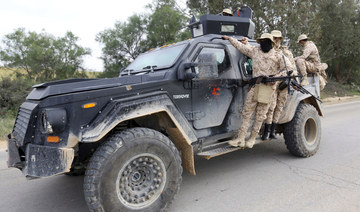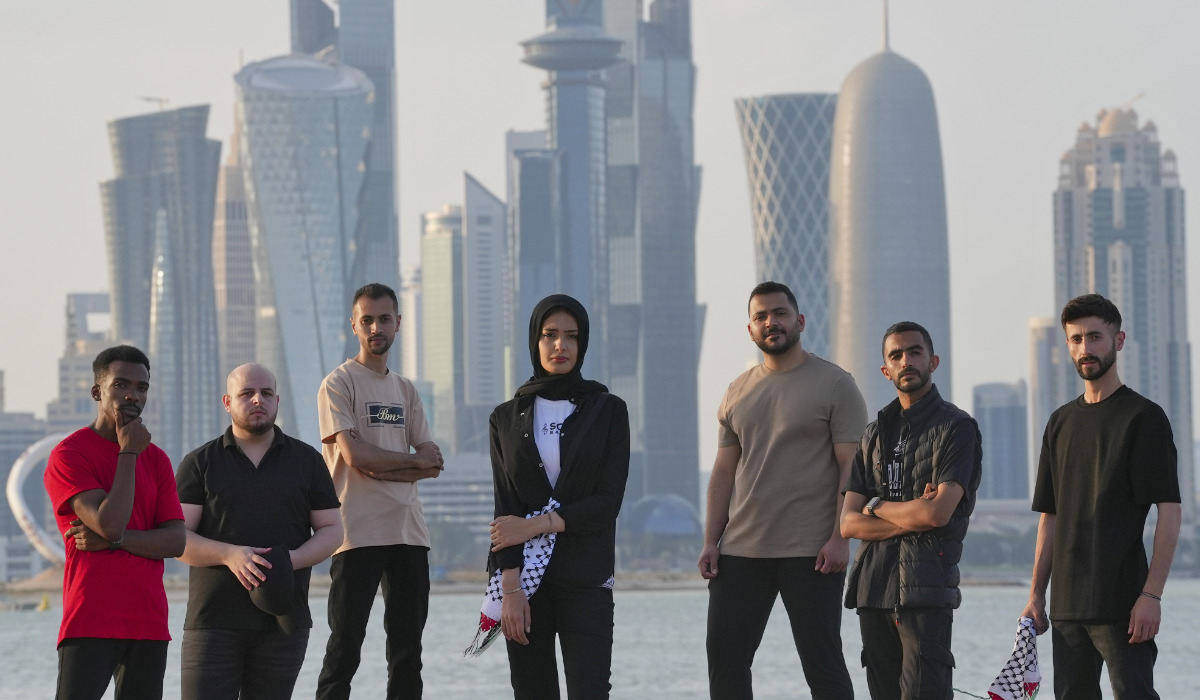A pioneering UAE startup is helping Middle East corporations to shrink their carbon footprint and reduce energy bills.
Dubai-based Yellow Door Energy builds bespoke solar-power plants on company premises.
It also finances, designs, operates and maintains the facilities, be they at a factory, office tower, warehouse or shopping mall.
Customers pay a monthly bill once the installation starts producing electricity and come to own the solar plant at the end of the 10- or 15-year agreement.
Known as build-own-operate-transfer or lease-to-own, Yellow Door Energy’s contracts can save clients 40 percent or more on their electricity costs.
“For customers that don’t consume a lot of power, such as logistics warehouses, we can meet all of their electricity needs from their rooftop,” said Jeremy Crane, co-founder and CEO of Yellow Door Energy.
“For others, such as factories with energy-intensive processes, we might service 25 percent to 50 percent of their needs.”
He was previously chief operating officer of Dubai’s Adenium Energy Capital, a venture capital and private equity firm.
Convinced of the potential of solar power to meet corporations’ electricity needs, he persuaded Adenium to become a founding investor in Yellow Door Energy, and the parties co-launched the venture in 2015.
Typically, the startup will build a solar plant on the rooftop or parking lot of a company’s premises, generating locally the power it needs.
Jordanian regulations enable private operators to produce electricity in one location and consume it in another.
In the UAE and most other Middle East countries, solar plants unaffiliated with utility companies must generate electricity in the location where it will be used.
In May, Yellow Door Energy signed a deal with Dubai’s Majid Al-Futtaim to supply solar power to its Carrefour stores in Jordan.
The company will build a 17-megawatt (MW) solar park to serve 28 stores across the country.
Typically, 10,000 square meters of solar panels will generate 1 megawatt of electricity. “We generally focus on companies that need 1 megawatt or more of power,” Crane said.
The customer remains connected to the grid or other sources of electricity, such as generators. Since solar power fluctuates depending on the weather and time of day, a back-up solution is essential.
“Solar panel cells are decreasing in price by 5 percent to 10 percent every year, driven largely by efficiency improvements, so you need fewer panels to generate the same amount of electricity,” Crane said.
“When you need fewer panels, you also need less racking, wiring, and labor, which reduces significantly the overall cost of the project.”
This enables Yellow Door Energy to deliver cheaper power to its customers.
“We can reduce the lease payments that they have to make,” Crane said.
In the UAE, Yellow Door Energy’s customers are mostly in the logistics, industrial, and food and beverage sectors.
In Jordan, they tend to be shopping malls, hospitals and supermarkets.
The focus in Egypt is on logistics and light manufacturing, while Pakistani customers mainly operate in the industrial sector.
“By enabling businesses to generate clean energy on their own premises, we can accelerate the sustainable energy transition,” Crane said.
His company received $65 million in its first round of venture capital financing in January 2019. Its shareholders include the World Bank’s International Finance Corporation, Japanese conglomerate Mitsui, and Arab Petroleum Investments Corporation.
Yellow Door Energy, which has around 50 staff in the UAE, Jordan and Pakistan, set its sights on investing more than $100 million in building solar plants in 2019.
It plans to raise more funds in 2020 “to support our geographic expansion,” Crane said in conclusion, adding that the startup is eyeing the Gulf, Levant and Africa.
This report is being published by Arab News as a partner of the Middle East Exchange, which was launched by the Mohammed bin Rashid Al Maktoum Global Initiatives and the Bill and Melinda Gates Foundation to reflect the vision of the UAE prime minister and ruler of Dubai to explore the possibility of changing the status of the Arab region.





























